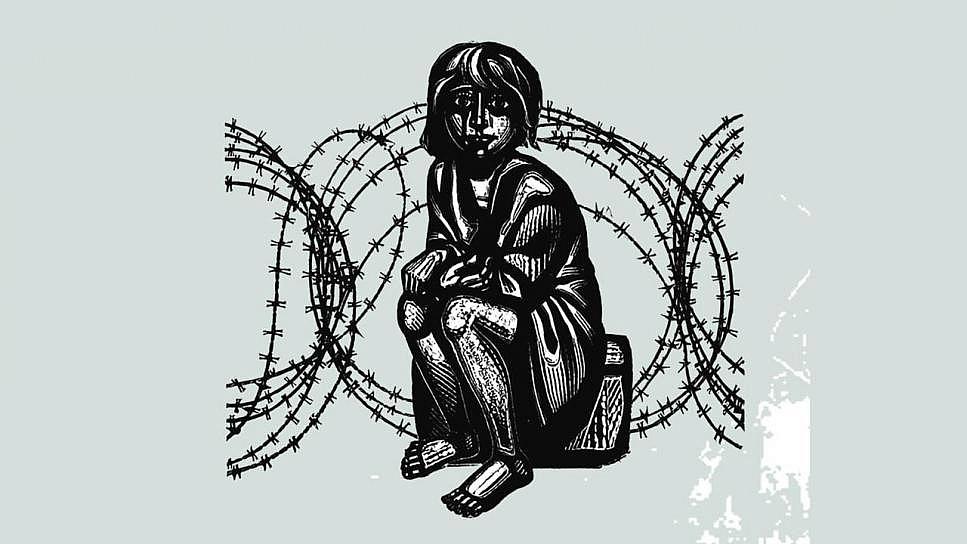On the occasion of the commemoration of the 1974 Turkish invasion in Cyprus we are posting the following brief memo, published by the Press & Information Office of the Republic of Cyprus.
The consequences of Turkey’s military invasion of Cyprus in 1974 constitute, to this day, a sore point in the contemporary history of the island: The military occupation, the forcible division, the violation of human rights, the massive colonization, the cultural destruction, the property usurpation and ethnic segregation imposed since Turkey’s military invasion remain the main characteristics of the status quo on the island.
Today, Turkey, a candidate country for EU membership, is still accountable to the international community for its military invasion against a member state of the European Union and the United Nations. The occupation of part of the island and the violation of human rights constitute an unacceptable state of affairs, an affront to the international legal order and an ongoing threat to regional stability that must be redressed the soonest possible.

In July 1974, Turkey invaded the Republic of Cyprus, in violation of the UN Charter and the fundamental principles of international law. The dire consequences of the invasion and subsequent military occupation by Turkey, in violation of the United Nations’ ceasefire agreements, are still felt today by the people of this EU member state:
• 36,2% of the sovereign territory of Cyprus is still under illegal military occupation by Turkey.
• 200.000 Greek Cypriots, over a third of the total population, who were forcibly expelled from the occupied northern part of the Republic of Cyprus, where they constituted about 70% of the population, are still deprived of the right to return to their homes and properties.
• 1.200 persons, civilians and soldiers, are still missing, while the Turkish side refuses to cooperate in ascertaining their fate.
• 440 Greek Cypriots and Maronites, out of 20.000 at the end of August 1974, remain enclaved in their villages, which are still occupied. These people are living under conditions of oppression, harassment and deprivation.
• 43.000 troops from Turkey, heavily armed with the latest weapons, supported by air, land and sea forces, are illegally stationed in the occupied area, making it, proportionally, one of the most militarized regions in the world.
• 160.000 settlers from Turkey have been illegally brought to colonize the occupied area and alter the demographic structure of Cyprus.
• 58.000 Turkish Cypriots out of the 116.000 have emigrated from the island after the Turkish invasion, according to Turkish Cypriot sources, due to the economic and social deprivation that prevails in the occupied areas. Turkish Cypriots are now vastly outnumbered by troops and settlers from Turkey.
• The illegal construction on Greek Cypriot land and the illegal sale of property owned by Greek Cypriots, who were forcibly expelled from their homes after the Turkish invasion, continue.
• Turkey and the illegal regime continue to destroy, deliberately and methodically, the Hellenic and Christian cultural and historical heritage in occupied Cyprus.
A series of UN General Assembly and Security Council resolutions, as well as resolutions adopted by numerous other international organisations, including the EU, the Commonwealth and the Non-aligned Movement, reflect the universal condemnation of Turkey’s invasion and all subsequent acts of aggression against Cyprus. The resolutions demand the withdrawal of foreign troops, the return of refugees to their homes in safety and the ascertainment of the fate of the missing persons. Moreover, they call for the respect of the human rights of all Cypriots as well as for the independence, sovereignty and territorial integrity of Cyprus. More recently, the European Court of Human Rights has found the government of Turkey responsible for gross and systematic violations of human rights in Cyprus in its judgment against Turkey on 12 May 2014.
Successive rounds of UN-sponsored talks between the Greek Cypriot and Turkish Cypriot communities to resolve the Cyprus problem did not lead to a positive result due to the intransigence of the Turkish side. The Greek Cypriot side, on the other hand, remains steadfast on positions of principle, proceeds to the negotiating table in good faith and with targeted proposals, seeking to free Cyprus from Turkish troops and to reunify the country and its people.
The Greek Cypriot side, displaying goodwill for a solution to the Cyprus problem that would serve the interests of all the people of Cyprus, has submitted a package of confidence-building measures, with the aim to restore trust between the two communities and give an impetus to the process of the talks. On 11 February 2014, following an initiative by President Anastasiades, the leaders of the two communities agreed on a Joint Declaration on the re-launching of the negotiations. The Declaration expresses the leaders’ determination to reach a solution based on a bi- zonal, bi-communal federation, with political equality, as defined in the relevant United Nations Security Council Resolutions, the High Level Agreements and the principles of the European Union. The united Cyprus, as a member of the United Nations and of the European Union, shall have a single international legal personality, a single sovereignty and a single Cyprus citizenship. Moreover, it is stated that the leaders of the two communities shall have the ultimate decision making power and that only an agreement freely reached by them, without any form of arbitration, may be put to separate simultaneous referenda; the importance of implementing confidence building measures is also stressed.
The Greek Cypriot side’s objective remains firm: a bi- zonal, bi-communal federation, with a single sovereignty, a single citizenship and a single international personality, with full respect for the human rights and freedoms of all the citizens of the Republic Cyprus: Greek Cypriots, Turkish Cypriots, Maronites, Armenians and Latins.
The Cyprus Government comes to the new round of talks in goodwill, with the aim to achieve a solution to the longstanding problem that afflicts the people of Cyprus. The key to the solution is in the hands of Turkey and the Turkish Cypriot community. The current regime in occupied Cyprus is illegal and must cease to exist. The termination of occupation, the respect of human rights and the reunification of the island and its people is the primary objective of the Greek Cypriot side, until final vindication.




